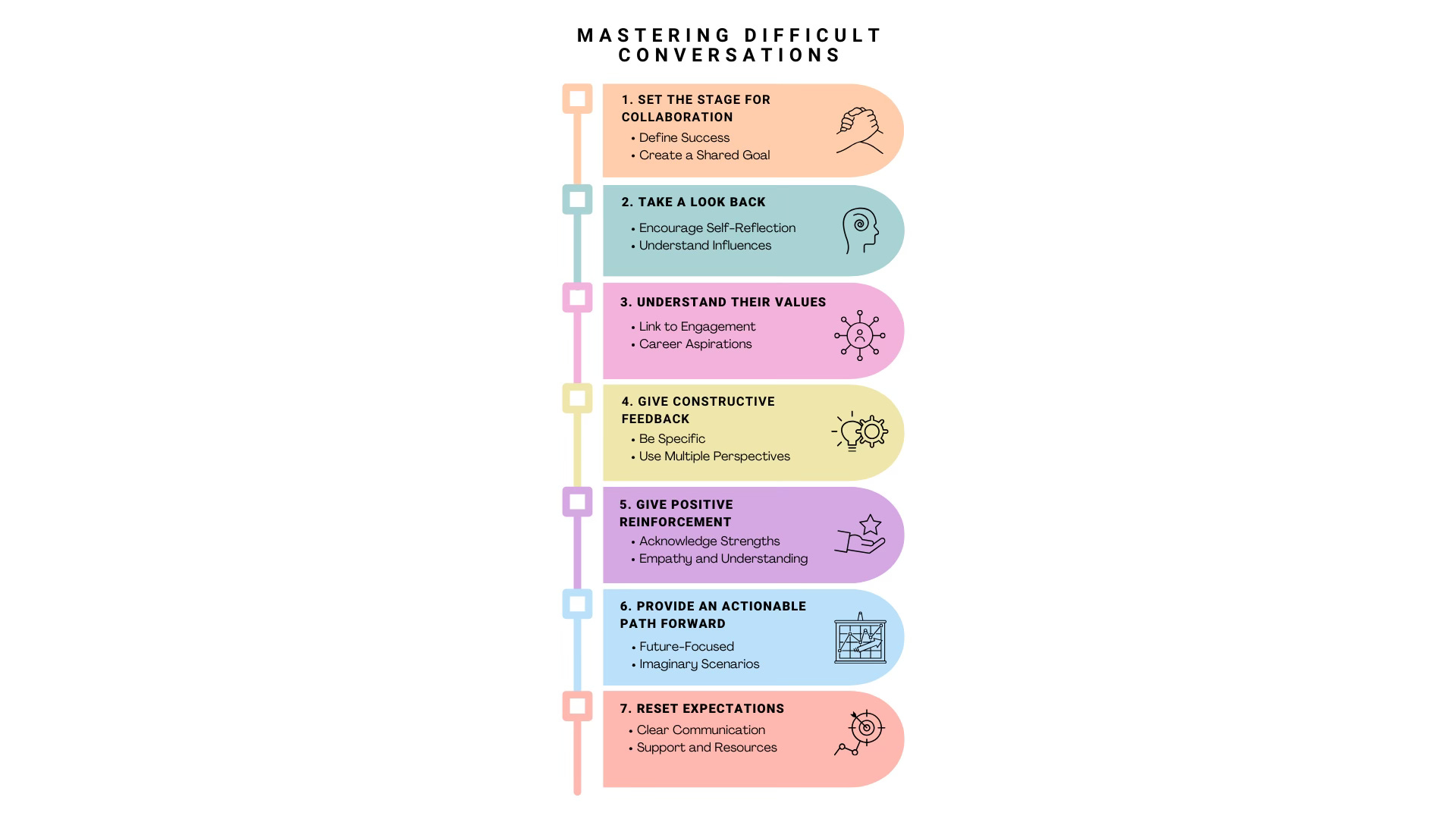Photo by Anonymous on Canva Pro
Hello! Welcome to the newsletter - “Leadership for Maximum Impact." In this weekly series, we aim to empower you with insights, strategies, and inspiration to enhance your leadership skills, enabling you to transform your professional and personal life.
The essence of growing your impact lies in our commitment to making a more meaningful and positive contribution to the people, organizations, and causes we value, fostering broader and lasting results.
Created by Jenny Fernandez, M.B.A., a Leadership and Organizational Coach, Brand Consultant, and Advisor. She is also a contributor to Harvard Business Review, Fast Company, and Forbes. Jenny helps leaders and organizations create work cultures that foster collaboration, innovation, and resilience.
I invite you to join me on this journey to design your vision, cultivate your leadership, and amplify your impact to new heights. Together, let's embark on a path of growth and empowerment.
As a leadership and team coach, I frequently encounter situations where managers feel unprepared to give their team members negative performance feedback. These conversations can be particularly challenging because the stakes are high. In my Harvard Review Article “How to Talk to an Employee Who Isn’t Meeting Expectations,” I analyze these difficult conversations. Here, I provide a framework and roadmap for approaching them as teaching moments that can strengthen the manager-employee relationship.
It is critical to leverage these challenging performance conversations as opportunities to collaborate and define a shared commitment to growth and development. To do this, managers must prioritize these conversations and prepare accordingly. They must also exercise empathy and collaboration. Creating the space for self-reflection and an understanding that change is possible can help the employee move from feeling victimized to empowered.
Managers must embrace these teaching moments to help them become more resilient and adept at problem-solving and developing professional relationships. I call these moments “healthy friction.” As the popular metaphor describes, “Diamonds are made under pressure.” This transformation process powerfully reminds us that remarkable outcomes often require challenging conditions.
The “Feedback GROW-Framework” provides a structured approach to delivering feedback that focuses on performance and aligns individual and organizational values, ensuring a holistic growth-oriented environment.
Here's how the GROW framework can be implemented in your leadership strategy:
Feedback GROW-Framework
G - Goals and Metrics
Define Success Metrics: Establish clear success metrics and create a shared goal to ensure alignment and support. This step is essential to set the stage for meaningful feedback and to clarify what success looks like for your direct reports and your team.
R - Retrospective and Reflection
Conduct Performance Retrospective: Facilitate a performance retrospective to understand past achievements and areas for improvement. This involves reviewing past performance data, discussing what went well, and identifying areas for development. Encourage team members to share their perspectives and insights during these sessions.
O - Options and Values
Align Values and Engagement: Link individual values to organizational goals to enhance engagement and commitment. When team members see how their personal values align with the company’s mission, they are more likely to be motivated and invested in their work.
Consider these prompts:
When you think about your long-term goals, how does your current role contribute to your professional growth?
Which aspects of your work do you feel align most with your career aspirations, and how can we build on those strengths?
Could you talk about any experiences or skills you hope to gain soon to support your career path?
Deliver Specific, Actionable Feedback: Provide precise and actionable feedback using concrete examples and multiple perspectives. This ensures that feedback is clear, relevant, and easily understood, enabling individuals to take specific actions for improvement.
W - Will and Action
Develop a Strategic Improvement Plan: Create a forward-looking improvement plan with hypothetical scenarios for better outcomes. This plan should outline the steps necessary to achieve the desired improvements and include milestones to track progress.
Reinforce Strengths and Empathy: Highlight strengths and demonstrate empathy to foster a positive, growth-oriented environment. Acknowledge your team members' achievements and strengths and show empathy for their challenges to build a supportive atmosphere.
Reset and Align Expectations: Communicate clearly and align expectations to ensure understanding and commitment to performance standards. Regularly revisit and adjust these expectations to reflect changing goals and circumstances.
As author, sales expert, and motivational speaker Zig Ziglar said,
“A goal properly set is halfway reached.”
Coach’s Advice of the Week:
Be Specific and Actionable - When giving feedback, focus on specific behaviors or actions rather than generalizations. Use concrete examples to illustrate your points and provide actionable steps for improvement. For instance, instead of saying, “You need to improve your communication skills,” you could say, “In the last team meeting, I noticed you interrupted several colleagues. Let's work on listening actively and allowing others to finish speaking before you respond.”
Recommendation: Use the Evernote app or a dedicated feedback journal to jot down specific instances and examples of behaviors as soon as you observe them.
Create a Safe Environment - Establish a trust-based environment where feedback is seen as a tool for growth rather than criticism. Encourage open dialogue and ensure that feedback sessions are private, respectful, and development-focused. Begin by highlighting the individual's strengths and contributions before discussing areas for improvement.
Recommendation: Use the platform Officevibe or CultureAmp to conduct anonymous surveys and gather feedback from your team regularly.
Encourage Self-Reflection and Ownership - Before you provide feedback, encourage team members to reflect on their performance and identify their own areas for improvement. Ask open-ended questions like, “How do you feel about your recent project performance?” or “What do you think went well, and what could be improved?”
Recommendation: Implement a regular practice of reflective journaling using tools like “Day One” or a simple notebook. Encourage team members to write down their reflections on their performance, challenges, and achievements at the end of each week.
Resources Of The Week:
Book: "Radical Candor: Be a Kick-Ass Boss Without Losing Your Humanity" by Kim Scott
TED Talk: "The Power of Vulnerability" by Brené Brown
Book: "Thanks for the Feedback: The Science and Art of Receiving Feedback Well" by Douglas Stone and Sheila Heen
Sneak Peek into My Plan:
Coming soon, my HBR IdeaCast Podcast on this very topic!
Register on my website and newsletter to receive my upcoming e-book on Conducting Challenging Feedback Conversations.
About the Author.
Jenny Fernandez is a nationally recognized Leadership Coach, Advisor, and Brand Consultant helping to develop resilient leaders to achieve their goals and scale their impact through branding, collaborations, and innovative thinking to drive accelerated and transformative growth. She works with executives and teams in high-growth companies, medium-sized businesses, and scaling start-ups. She also focuses on working with women CEO/Founders, high-potential/rising leaders, and diverse talent.
Jenny has been awarded “LinkedIn Top Voice in Executive Coaching, Personal Branding, Leadership Development, and Entrepreneurship,” Top 30 Management Thinkers in the World to Watch - Thinkers50 Radar 2024, and Top 30 Global Gurus for Brand. She was invited to join Marshall Goldsmith’s 100 Coaches Community and Agency, the world’s #1 Executive Coach and Leadership Thinker. This recognition is given to the world’s top leadership/executive coaches and thought leaders.
She is a contributing author in Leadership and Branding at Harvard Business Review,Fast Company, and Forbes. She has been interviewed by The Washington Post and HuffPost about Gen Z and the Future of Work. Jenny’s professional journey brings together an understanding of the skills needed to run a fast-moving, emerging startup, decades of industry experience in partnering and team building, investor acumen, real-world business savvy, and a dedication to helping future leaders grow their companies.
She trained at Kellogg School of Management, where she received her MBA. She is a Columbia and New York University adjunct professor, teaching Next Gen leaders in Leadership, Branding, and Marketing.
What's Next? Stay tuned for upcoming episodes where we'll go deeper into leadership principles, success stories, and actionable insights to scale your leadership and fuel your professional growth. Feel free to share your thoughts, experiences, or topics you'd like us to cover in future newsletters. Let's embark on this journey of growth together!
Remember, the path to leadership is a continuous journey. Let's make 2024 a year of immense growth, success, and positive impact.
Here are some ways to access further strategies, tips, and resources:
★ Follow me on LinkedIn to join the conversation on my posts on #leadership #collaboration#innovation and #branding topics. Feel free to share the newsletter with friends and colleagues who could benefit from these insights by forwarding it.
★ And if you love YouTube or Instagram, feel free to follow me. I will be sure to post videos, stories, and photos on Leadership Hacks!
★ Follow my Business Website for my blog, tips, and special content.
★ Reach out to me directly at jenny@jennyfernandez.com
Make sure you never miss an issue by clicking the "Subscribe" button. For more articles, tips, and insights, connect with me here!






